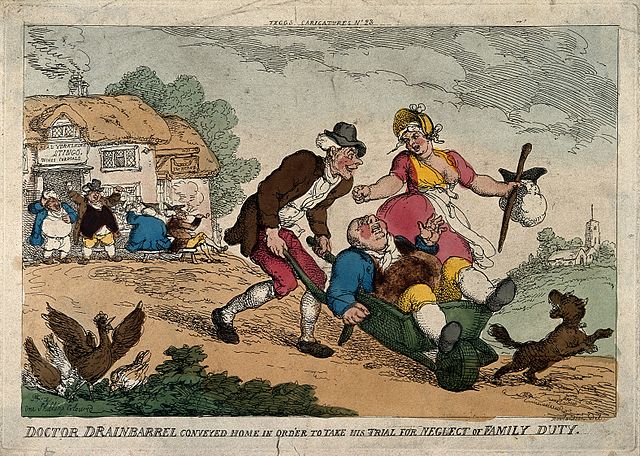![]()
Avoiding spelling mistakes – more eggcorns
Sometimes when we write Thai English in academic research papers and theses, if we understand why we make certain errors, we can avoid making the same mistakes in future.
Thammasat University students of linguistics may have heard of the term eggcorn. This was named by a linguist after the incorrect spelling of the common English word acorn, the single seed, inside a tough shell, of the oak tree or other trees. If we do not read a word frequently and do not have a good memory of how it looks when it is printed, then we must rely on how it sounds. Writers of Thai English often do this when they use technical vocabulary in academic writing that they may have heard an ajarn say in a seminar. So we try to guess the spelling of a word based on how we think it may be pronounced. Naturally, there are many problems with this approach, and it often goes wrong, since the pronunciation of the word may not have been in standard English or American speech. Even if it was in standard English or American speech, spelling of words often cannot be guessed by the way they are pronounced.
However, students and other writers of Thai English for academic purposes should not worry too much, because linguists enjoy eggcorns. They consider them lively and original examples of the way our brains try to make sense of the problem of language. If we have no idea of how the word acorn looks and we hear it pronounced, we may try to include a familiar word that we are sure exists, egg, even though that turns out to be incorrect. In an English class, that spelling would be marked as wrong, but in a linguistics class, an ajarn might appreciate it.
Also, eggcorns are written by native English speakers as well, not just by writers of Thai English. Anyone trying to write a word who is not sure about the spelling can write an eggcorn. Since it happens often, we may avoid feeling embarrassed or ashamed if we make this type of error, and look on it as part of a game of language.
By looking at other examples of eggcorns, we can see how our minds or the minds of other writers work when we spell words. Also we may keep in mind that the best way to be sure about how words are spelled is to read a lot in English, and also to use spell check programs and Google words whenever we are not certain, to get quick answers.
One example of an eggcorn is to write mistakenly wheelbarrel when what we mean to write is wheelbarrow.
A wheelbarrow is a small hand-propelled vehicle, usually with just one wheel, designed to be pushed and guided by a single person using two handles. The term wheelbarrow is made of two English words, wheel and barrow. Barrow derives from an Old English term meaning a device for carrying loads.
The mistaken acorn of wheelbarrel combines two different words, wheel and barrel.
We may make this mistake because most speakers of English as a second language are more familiar with the word barrel than the word barrow.
As we know, a barrel is a hollow cylindrical container with a bulging center, longer than it is wide, traditionally made of wood and held together with wooden or metal hoops.
Even if we know the word barrel better than barrow, this is not a sufficient reason for substituting it where it does not belong.
Carrying loads is the most important function of the wheelbarrow, not holding something like a barrel or other container.
The wheelbarrow is designed to distribute the weight of a load between the wheel and the person pushing it. Wheelbarrows are often seen in the construction industry and gardening.
In China, traditional wheelbarrows had a central wheel supporting the load. A two-wheel type is more stable, while the one-wheel type is easier to maneuver in small spaces.
The earliest traces of wheelbarrows were found in tomb murals and brick tomb reliefs created around 2000 years ago for the Han Dynasty Emperor Hui.
A painted tomb mural of a man pushing a wheelbarrow was found in a tomb at Chengdu, Sichuan province, dated to 118 CE.
The stone carved relief of a man pushing a wheelbarrow was found in the tomb of Shen Fujun in Sichuan province, dated around 150 CE.

Here are some examples of the word wheelbarrow used in a sentence:
- Business tycoon Boonchai Bencharongkul, the country’s foremost arts patron, has a stack of money he wants to share with everyone. But don’t rush off to his Museum of Contemporary Art with a wheelbarrow to collect your portion. What Boonchai has to offer are photo reproductions of all of Thailand and Siam’s paper currency, contained in a two-volume history.
- The convenience of dumping used plastic bags and other plastic items takes a toll on the environment. Even when disposed of properly, a huge amount of plastic waste leaks into the environment and finds its way into the waterways and seas. The ban on single-use plastic bags was the first step of the country’s long-term plastic waste management plan, which will include measures to stop using other items such as cap seals, plastic cups and straws as well as polystyrene food containers. The ban was accompanied by hilarious alternatives as lighthearted Thais, instead of using cloth bags, loaded up suitcases, wheelbarrows, traffic cones, and traditional earthenware water jars with their groceries. When consumers became accustomed to the plastic bag-free lifestyle, physical shopping was restricted due the lockdown, following the Covid-19 pandemic. While social distancing and staying at home, they didn’t miss out on the shopping though as online stores were open 24/7.
- I borrowed a wheelbarrow from the barn, and wheeled my trunk down to Recitation Hall, singing.
- Andreas Flaten’s wheelbarrow of 91,515 pennies — dropped off in his driveway by former employer A OK Walker Autoworks last month — was picked up Thursday and cashed by Coinstar, according to a press release from the firm. “I was spending an hour or two a night trying to clean the pennies and probably only cleaned off about $5 worth,” Flaten said, according to the press release. “I was so relieved and grateful.”
- He gave the government his two cents — and 299,998 more. A Virginia man hates the DMV so much, he paid sales tax on two new cars with 300,000 pennies, the Herald Courier reported. Nick Stafford hauled five wheelbarrows of the coins to the Lebanon Department of Motor Vehicles Wednesday to seek revenge because workers had refused to answer his questions in September, according to the paper. “If they were going to inconvenience me then I was going to inconvenience them,” he said. To increase the hassle-factor, he paid workers a total of $440 to break open paper rolls of the pennies and dump them into the wheelbarrows.

(All images courtesy of Wikimedia Commons)
